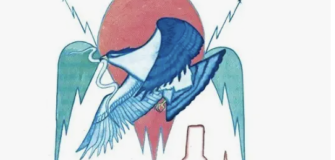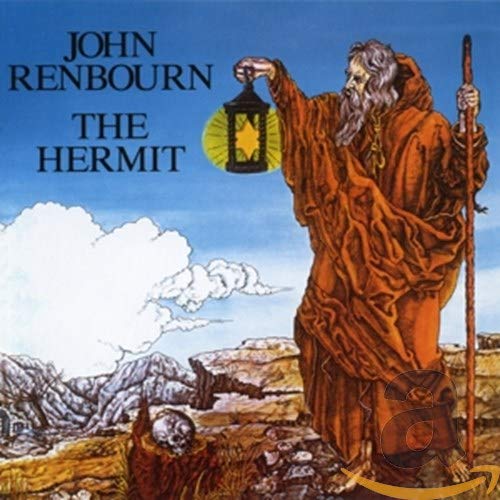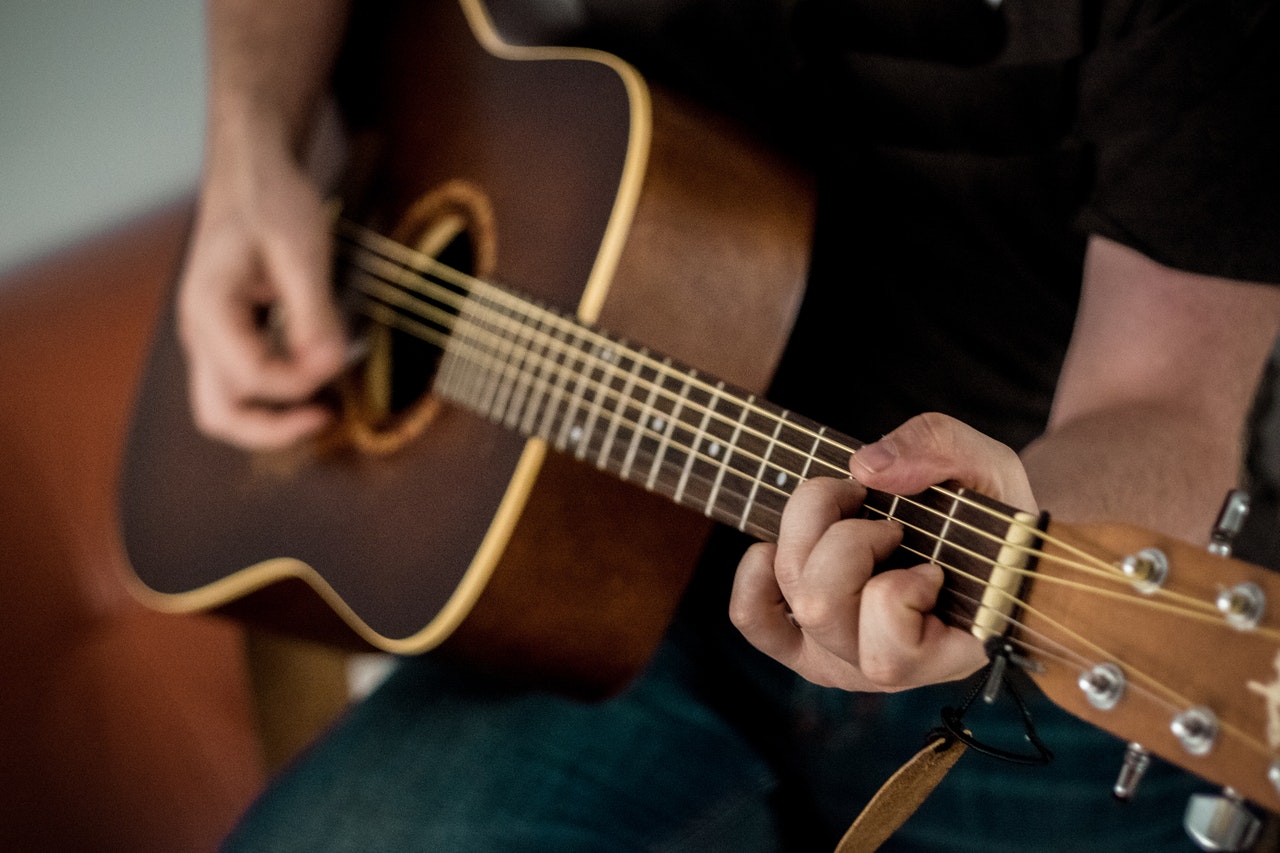Steppenwolf
Share

By: Stephen Rose
“You’ve filled his house with things of gold, while handing crumbs to the old and poor.
And then you preach about being pure, and wonder why we’re laughing” – From Here To There Eventually (“Monster”)
Steppenwolf toured to promote their albums, but like many top-selling acts of the 60’s their main accomplishments were in the studio. They were known for writing and producing songs with catchy hooks, strong melodies, tight arrangements, and provocative lyrics. Most importantly, they had a gifted singer songwriter, and charismatic leader in their front man John Kay.
John Kay (Joachim Fritz Krauledat) was born in 1944 in East Germany and grew up during the Cold War learning first hand what political and military suppression was all about. During the closing days of World War II, his father was killed fighting the Russians a month before he was born. When John was 4 years old he escaped with his mother into West Germany where he developed a strong appreciation for freedom and democracy. It was during this time that he learned to speak English and fell in love with American Rock ‘n’ Roll by listening to the Armed Forces Radio.
In 1958, John Kay immigrated to Canada with his mother and stepfather and began developing his skills as a folk singer and blues artist. In September 1965 he joined the Canadian blues-rock band The Sparrow, led by guitarist Dennis Edmonton (also known as Mars Bonfire, composer of Born To Be Wild). The group included future Steppenwolf members Jerry Edmonton on drums, Nick St. Nicholas on bass, and Goldy McJohn on keyboards.
In early 1966 The Sparrow began performing at clubs in New York and recorded several singles for Columbia records which failed to chart. By the end of the summer they relocated to California and shared stages in Los Angeles and San Francisco with many of the other top acts of the day including The Doors, Steve Miller, The Youngbloods, and Moby Grape. [One of The Sparrow’s shows at the Matrix in San Francisco during this period was recorded then released in July 1969 as “Early Steppenwolf,” reaching #29 on the U.S. album charts.)
The Sparrow broke up in June 1967 when guitarist Dennis Edmonton left the band to embark on a solo career. He was replaced by Michael Monarch at which point the group signed a recording contract with ABC Dunhill Records. At producer Gabriel Meckler’s suggestion, they changed their name to Steppenwolf, the name of a popular underground novel by Herman Hesse. [Gabriel Meckler produced Steppenwolf’s first four studio albums, assisted by surf rock legend Richard Podolor.]
“We’ll call you when you’re six years old, and drag you to the factory.
To train your brain for eighteen years with promise of security.
But then you’re free, and forty years you waste to chase the dollar sign.
So you may die in Florida at the pleasant age of sixty nine. ” – The Ostrich (“Steppenwolf”)
 Steppenwolf’s next album, The Second, was released in October 1968. The album, and hit single “Magic Carpet Ride,” both reached #3 on the U.S. charts. Other highlights include the Junior Wells tribute “Tighten Up Your Wig;” the pop rocker “None of Your Doing;” the extended blues suite “Disappointment Number (Unknown);” and the plea to Uncle Sam for leniency in drug laws “Don’t Step on the Grass, Sam.”
Steppenwolf’s next album, The Second, was released in October 1968. The album, and hit single “Magic Carpet Ride,” both reached #3 on the U.S. charts. Other highlights include the Junior Wells tribute “Tighten Up Your Wig;” the pop rocker “None of Your Doing;” the extended blues suite “Disappointment Number (Unknown);” and the plea to Uncle Sam for leniency in drug laws “Don’t Step on the Grass, Sam.”
To jail my fellow man
For smoking all the noble weed
You need much more than him
You’ve been telling lies so long
Some believe they’re true
So they close their eyes to things
You have no right to do
Just as soon as you are gone
Hope will start to climb
Please don’t stay around too long
You’re wasting precious time” – Don’t Step on the Grass, Sam (“The Second”)
“You, comin’ here, tellin’ me how proud you are.
Some clown just handed you a shiny little silver star.
You say, over there, the men are brave.
While the chickens stay away ’cause they’re all too much afraid
to fight for somethin’ they should believe in.
I’m sorry friend, you’ve got it backwards” – Chicken Wolf (“At Your Birthday”)
Steppenwolf’s most powerful political messages came in their fourth album “Monster,” released in November 1969. Monster is a concept album containing a call to arms in a fight against war, greed, and capitalism run amuck. Musically and lyrically, Monster was the band’s most consistent album from beginning to end since their debut.
Larry Byrom replaced Michael Monarch as lead guitarist for this album, which reached #17 on the pop charts. Two singles (“Move Over” and “Monster”) cracked the top 40.
| Excerpts From Monster |
|
“What gives you the right hey you To stand there and tell me what to do Tell me who gave you the power To stop me from livin’ like I do Remember if you plan to stay Those who give can take away Don’t bite the hand that feeds you” – Power Play (“Monster”) |
“Here’s to all the draft resisters who will fight for sanity
When they march them off to prison in this land of liberty
Don’t forget the Draft Resisters and their silent, lonely plea
When they march them off to prison, they will go for you and me” – Draft Resister (“Monster”)
“America where are you now?
Don’t you care about your sons and daughters?
Don’t you know we need you now
We can’t fight alone against the monster” -America(“Monster”)
Pressures from Steppenwolf’s record label to produce two albums each year – then promote them with constant touring and television appearances – resulted in some of their albums being of uneven quality. To help carry the load of the songwriting burden, producer Gabriel Meckler co-wrote several songs with John Kay, while drummer Jerry Edmonton contributed vocals and lyrics to a few tracks which did not always reach the same heights as the John Kay numbers.
Steppenwolf’s singles and albums continued to chart through 1972, then the original quintet disbanded on Valentine’s Day 1972 (a day that L.A. Mayor Sam Yorty officially designated as “Steppenwolf Day”).
At last count, Steppenwolf’s worldwide record sales have exceeded 25 million units, and their songs have been licensed for use in approximately 50 motion pictures and an even greater number of commercials and television programs. [Two songs from the first album (Born To Be Wild, and The Pusher) were featured in the 1969 film Easy Rider, contributing to the band’s popularity.]
Their hard-driven, punchy musical style, and the phrase “heavy metal thunder” – a reference to the sound of a motorcycle’s engine – gave name to an entire genre of music and foreshadowed the direction rock music would take into the 70’s. However, their lasting contribution to pop culture – which keeps them relevant today – is not only the power of their music, but the power of their message. John Kay’s experience growing up in Europe during the Cold War gave him an extra appreciation for freedom and liberty which was continuously reflected in his music and the lyrics of his songs.
Epilogue
John Kay currently resides in Tennessee and continues to support social and environmental causes through the Maue Kay Foundation’s Wild Life conservation and human rights projects. In 2004, he was inducted into Canada’s Walk of Fame in recognition of his early years as a Canadian citizen and the beginnings of his musical career in Toronto.
Notable Performances
July 5, 1968 – The Hollywood Bowl,Hollwyood,CA, with The Doors.
August 4, 1968 – TheNewportPop Festival,Costa Mesa,CA, with The Byrds, The Grateful Dead, Canned Heat and Sonny & Cher.
August 27, 1968 – The Fillmore West,San Francisco,CA, with Santana, The Staple Singers.
September 11, 1968 – The Avalon Ballroom,San Francisco,CA, with Santana.
December 6, 1968 – The Spectrum,Philadelphia,PAwith The Grateful Dead, Sly and the Family Stone, and Iron Butterfly.
November 28, 1969 – The Miami Pop Festival, Palm Beach, FL, with The Rolling Stones, Janis Joplin, Chambers Brothers, Sly & The Family Stone, Jefferson Airplane, The Byrds, Spirit, Pacific Gas & Electric, Sweetwater, Country Joe & The Fish, Johnny Winter, Grand Funk Railroad, and King Crimson.
June 20, 1969 – Devonshire Downs,Northridge,CA, with Jimi Hendrix, Joe Cocker, The Byrds, and Creedence Clearwater Revival.
June 26, 1970 –BathFestival,Somerset,England, with Led Zeppelin, The Byrds, Donovan, Frank Zappa, and Santana.
August 6, 1970 –Shea Stadium,NY, with Paul Simon, Janis Joplin and Johnny Winter.
Video
Born To Be Wild (Beat Club)
httpv://www.youtube.com/watch?v=7_81PchgI7A&feature=relmfu
Audio
Wolfgang’s Vault – Steppenwolf at the Fillmore West, 08-27-1968
http://www.wolfgangsvault.com/steppenwolf/concerts/fillmore-west-august-27-1968.html
Wolfgang’s Vault – Steppenwolf at the Fillmore West, 08-28-1968
http://www.wolfgangsvault.com/steppenwolf/concerts/fillmore-west-august-28-1968.html















